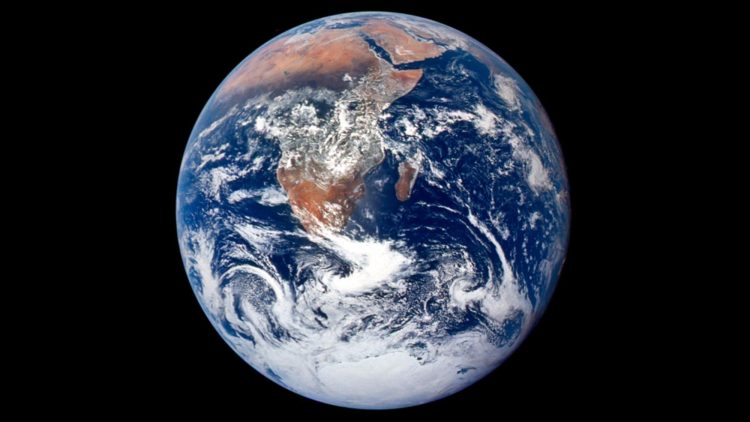Just for a moment, stare at the picture of the Earth on this page. You and I are neighbors. I can see your house from here. We think of the earth as incredibly large and very small, as the most solid entity we can imagine and the most fragile. To the best of our knowledge, it is the only place in the entire known universe where elephants can be found. Or any life for that matter.
During the history of the human race, we have been pilgrims, wayfarers, explorers and pioneers. Our feet and minds have carried us far. We migrated out of Africa and spread across the planet in search of food, fortune and, sometimes, just the horizon. But we did so in a thinly populated world with what seemed to be limitless resources. We are fast approaching 8.5 billion humans on the planet. Getting along with the earth, and with each other, will be increasingly important.
Some would argue that travel is a privilege of the wealthy and wastes resources like vast amounts of fuel, exploiting indigenous people and ecosystems. At times, travel and tourism does all of these things and perhaps even worse than we realize. But travel also expands our understanding of other people and cultures. Travel reminds us of how alike we are. Travel reminds us of the fragility of the planet and seldom do we travel that we return unchanged.
So here’s my hope. Actually, it’s my mission. I want to dedicate this small effort in the hopes of inspiring everyone who loves travel to assist in developing a community of travelers that respects the road, respects the people we visit, and those with whom we travel.
It’s not really THAT big a goal. Travel has the extraordinary power to transform us, broaden our perspectives, and forge connections across cultures and continents. Yet with this privilege comes responsibility. As travelers, we are temporary guests in the communities we visit, and our actions—both big and small—leave lasting impressions on the places and people we encounter. Being a responsible traveler means approaching each journey with intentionality, respect, and a commitment to leaving destinations better than we found them.
When we step into a new destination, we’re being welcomed into someone else’s home, whether that’s a bustling city, a remote village, or a pristine natural landscape. Being generous doesn’t necessarily mean spending extravagantly. It means approaching interactions with warmth, patience, and genuine interest. It’s taking the time to learn a few phrases in the local language, even if your pronunciation is imperfect. It’s thanking the bus driver, complimenting the street vendor’s craftsmanship, and expressing appreciation for the hospitality you receive. Small gestures of kindness create ripples that extend far beyond individual encounters.
Financial generosity also matters, but it should be thoughtful and appropriate. Tipping fairly when customary, paying reasonable prices without excessive haggling that undervalues people’s work, and compensating guides and service workers adequately all contribute to sustainable tourism economies. Remember that your vacation budget may represent months of local income, and approaching transactions with this awareness fosters more equitable exchanges.
One of the most impactful ways responsible travelers can make a positive difference is by directing their spending toward local businesses rather than international chains. Local businesses keep money circulating within the destination, supporting families, preserving traditional crafts, and maintaining cultural authenticity. The woman selling handwoven textiles at the market, the guide who shares stories passed down through generations, the chef preparing regional specialties with locally sourced ingredients—these are the people who give a place its character and soul.
Seek out cooperatives and social enterprises that reinvest profits into community development. Visit markets where farmers sell their produce directly. Take cooking classes from local chefs, hire independent guides who share deep knowledge of their homeland, and stay in accommodations owned by locals when possible. These choices create meaningful economic impact while offering you more authentic and memorable experiences.


